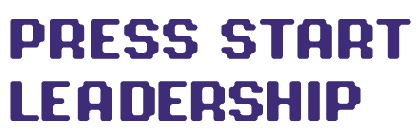Preparation Makes Perfect
5 Tips on How to Prepare
If you read my last blog post on The Power of Preparation, you may be here because you believe in its power, but you’re looking for more practical tips and tricks on how to prepare.
Being prepared is all about creating rituals for yourself, and rituals at their core are institutionalized habits. When we talk about preparation, we mean creating habits that help you succeed. Here are five of my favorite tips on how to prepare:
1. Make a List. Even if you have the greatest memory in the world, write everything out so you can see it all in one place. Why? It literally trains your brain to be more productive: [LINK: https://blog.trello.com/the-psychology-of-checklists-why-setting-small-goals-motivates-us-to-accomplish-bigger-things] Good ol’ fashioned paper is fine (plus, crossing something off with an actual pen gives you a nice dopamine hit), but if you’re looking for a digital version of the To-Do List, I highly suggest Trello.
2. Prioritize Your List. A lot of us make lists, but the most important thing is to prioritize the things on your list – otherwise you end up doing all the fun things first and never have time for the important things. It’s a little like eating dessert before dinner. Personally, I prefer the ABC Method of Prioritization created by Alan Lakein. Read about it in full when you have a chance, but for now, here’s the Cliff’s Notes version:
A = Must Do Now
B = Important, But Can Wait
C = Can Be Done Whenever
Start the night before and put all of your To-Dos for the next day on it. Then mark everything as A, B, or C and start working through them in that order. If you don’t get everything done, just roll it over to the next day. Don’t worry, there’s always tomorrow.
3. Practice Alone. Whether you’re preparing for a presentation or a job interview, practice what you’re going to say before you say it. Not only does it help you memorize, it helps you find the rhythm and things that aren’t working. I practice in the mirror, in the shower, walking around my house – wherever I can get away with it and not look like I’m talking to myself.
4. Practice with Others. Once you’ve practiced by yourself, find a test audience. In front of a large group of people or your potential new boss is NOT the first time you want another human to hear what you have to say. Gathering a small group of co-workers, friends, or family will work great depending on the situation. This is a great time to check your tone, make sure you’re being culturally aware, and to see if your jokes land (seriously, this one is important). Also, have your focus group ask any questions – this clues you in to what may await you.
5. Test (and Refine). Once you’ve practiced your spiel, make time to retool it. I used to give sales pitches at conferences, and I tried out a few different versions on my first several customers of the day until I found what worked. You don’t know what will land until you get it up on its feet, so have a few options drawn up and adjust on the fly.
In the spirit of preparing, visit my post on The Power of Preparation to learn more about why preparing is so important.
Do you think preparation makes perfect? What are your tips for preparing? Let me know in the comments below. Be sure to check out my podcast!


